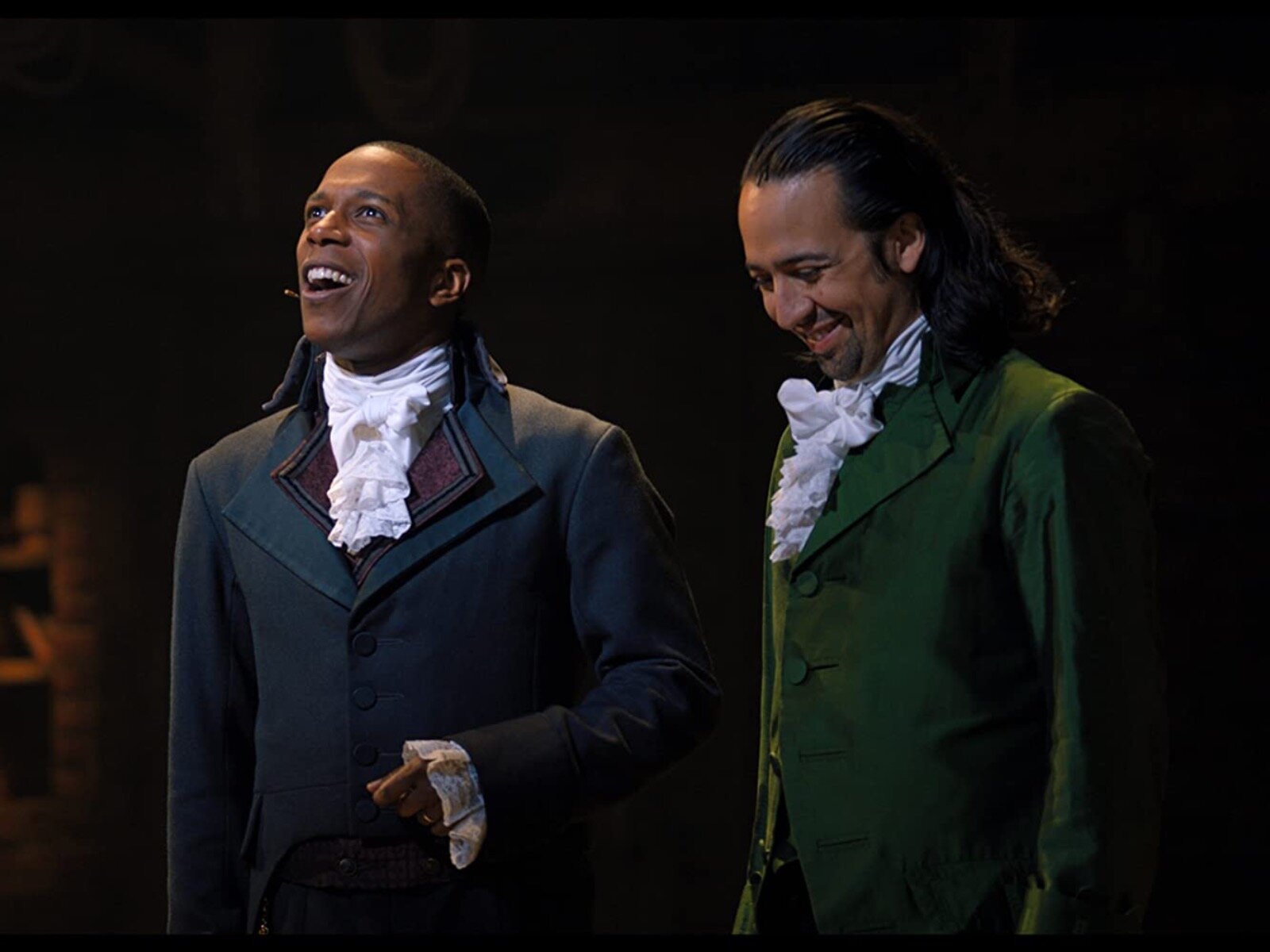After a night of celebrating a successful tour with a duo of circus performers, eating and drinking maybe a bit too much, Solomon Northup (Chiwetel Ejiofor), a free black man and expert violinist from New York, finds himself chained in a dark, cold prison. The only light harshly streams in from a barred window.
Some men eventually come in. Solomon tries to explain his predicament, but his captors respond by beating the humanity out of him, verbally at first and then with a vicious flogging, starting with a wooden paddle and after the paddle breaks, a leather strap. He seethes in stunned agony and so does the audience, the director not turning an eye from any of the blows. Left shocked and in searing pain, Solomon comes to a window and yells for help; in the background, a city gazes down on him in apathy.
I’ve previously noted that no new horror movies came out around Halloween this year, but watching that sequence from Steve McQueen’s "12 Years a Slave," that would be inaccurate. Solomon Northup’s story is one of unimaginable terror and fear, an unflinching true-life portrait of humanity surviving a seemingly impossible battle through institutionalized dehumanization and the scars it leaves behind. It's an experience that truly horrifies, crawls under the skin and then burrows even deeper. And as it should.
After his imprisonment, Solomon is shipped by riverboat with other slaves down to New Orleans. His former life is only seen in brief flashbacks, mostly near the beginning of the film. McQueen and his screenwriter John Ridley (both black, the former from Britain) allow no respite for the audience in the joys of the past. Solomon certainly can’t. His captors have attempted to beat those memories out of him and create a new identity, Platt, which a slave salesman (Paul Giamatti) bluntly slaps into his head.
He’s eventually sold to a conscience-heavy slave owner named Ford (Benedict Cumberbatch). There, Solomon attempts to settle in and maintain some of his dignity and demonstrate his intelligence – he plays the violin masterfully and demonstrates his knowledge in advising a throughway – until his owner sees his worth. But for all of his inner conflict, Ford still subscribes to the horrible system, and when Solomon tries to explain his horrific scenario at a potential turning point, his owner yells, "I don’t want to hear it." Feeling bad is enough to appease his guilt.
When Solomon pushes one of a slavers (Paul Dano, delectably wormy as always) too far with his intellect, Solomon is lent off from Ford to a new owner, a Bible-thrashing drunk named Epps, played with monstrous, chilling intensity and insecurity by McQueen’s favorite actor Michael Fassbender. There, he picks cotton for his merciless master. But they’re really pawns – especially Patsey (painfully good newcomer Lupita Nyong’o), an attractive young slave who unfortunately catches the master’s lustful eye – in Epps’ floundering marriage to his violently jealous and vindictive wife (Sarah Paulson).
The only thing Solomon has to cling to is strong but deeply hidden hope and the even-further suppressed memory of who he was before. How to go about that, however, is a seemingly unanswerable question. No one will listen, and many who do are not trustworthy. Fighting, escaping or merely giving off the scent of either is a certain path to self-destruction. The only true plan is to survive and endure. Somehow.
This is not a "safe" race movie, with individual dramatic moments carefully crafted for maximum gasps and righteous head shakes from the audience mixed with uplift, inspiration and cheer to say it’s all better now (if you think it is, look up "Halloween blackface;" the wounds of such grave mistreatment have yet to completely disappear, nor have those somehow blind or apathetic to them). With clear eyes, "12 Years a Slave" recreates a world of deeply embedded violence and racism, where acts of horrific cruelty are the norm but never lose their rattling shock, and where your life is not your own.
McQueen’s climb from unknown short film director to almost certain Oscar nominee has been fast. His 2009 feature debut "Hunger" was mostly acclaimed for Fassbender’s physical demanding performance. The filmmaker’s second movie, the NC-17 sex addict drama "Shame," won raves as well, this time not only for Fassbender’s literally naked performance, but for McQueen’s brave, unflinchingly honest and often grim look into another socially uneasy topic.
The NC-17, of course, limited the size of his audience (and Oscar attention), making "12 Years a Slave" – yet another story about the battle between the body and the soul – is his first big step into the mainstream spotlight. It’s fair to say he’s seized the moment and seized it hard.
In the past, McQueen’s skill and artistic eye was never in question, so much so his visual flourishes – extended long takes, off-kilter framing – sometimes overshadowed their purpose, the characters or the film as a whole. He’s honed them beautifully here, using his often-fascinating visual eye and artistry for fascinating images and emotionally-charged sequences.
One excruciatingly extended scene involves Solomon dangling for his life from a low-slung noose, his toes desperately reaching for the mud while life takes place behind him seemingly ignorant. The shot says so much about the tragic, imposed mass psychology of slavery without saying a single word. Later, he masterfully uses another one of his signature tracking shots for the film’s most horrific moment, a savage, soul-shattering whipping that slowly breaks the characters and the audience.
Combined with Hans Zimmer’s sparingly used but appropriated menacing soundtrack, "12 Years a Slave" develops a disturbingly authentic world of unwavering, permeating fear, dread and tension. There is no break for the slaves, and Ridley and McQueen makes sure there isn’t one for the audience either.
When Solomon finally lashes out at his overseer, it should be a brief breath of catharsis (a poop pie moment to use a recent Oscar-nominated film for reference). Instead, the audience is terrified, knowing this brief exciting rush will no doubt be followed infinitely more vicious retribution. Even his release at the end (calm down, that’s not a spoiler; his fate’s in the title) comes with a crushingly sad truth: This is just one man’s story, a lucky and exceptional one at that. He may be leaving this world of pain – physically but never emotionally – but so many others will not, save in death.
Ejiofor, a great actor (see "Children of Men" or "Dirty Pretty Things") who managed to even bring some weight to Roland Emmerich’s World Got Blow’d Up Simulation #47 (otherwise called "2012"), beautifully brings across that pain and the weight of Solomon’s emotional journey as a man tenuously grasping to his identity, his past and his humanity in an environment all to eager to beat it out of him.
Even in his young career, McQueen has always been terrific with pulling naturally powerful performances out of his leads. Here is no different, with the mildly distracting five-minute glorified cameos spread sparsely throughout the film his only, extremely slight misstep. Pitt especially, who comes complete with "World War Z" hair, grayed chinstrap beard and folksy take on Ridley’s authentic 19th century dialogue.
"12 Years a Slave" is filled with vivid artistic prowess and humanity, but it is above all else relentless, delivering emotional gut punch after emotional gut punch with open eyes and no sign of relief in sight (in a smart move, the film leaves any sense of time out in order to add to the draining endlessness). It paints the crime as it was: ravaging and brutal. Anything else would be an injustice to Solomon’s incredible story of soul-wrenching survival and those slaves whose stories couldn’t be told here.
All the while, McQueen fits in shots of the natural beauty of the American south – crawling through the sugar cane, floating down a river while the warm sun beams down through the trees – as though asking how our ancestors could’ve turned such a beautiful country into a ruthless prison with such brutality and such willing blindness.
It’s the easy and simplistic analogy to make, but McQueen has made a "Schindler’s List" for slavery, a movie that feels more like an unvarnished page out of history. A painful, horror-filled page – one that leaves deep cuts – but one that can’t be soon forgotten.
As much as it is a gigantic cliché to say that one has always had a passion for film, Matt Mueller has always had a passion for film. Whether it was bringing in the latest movie reviews for his first grade show-and-tell or writing film reviews for the St. Norbert College Times as a high school student, Matt is way too obsessed with movies for his own good.
When he's not writing about the latest blockbuster or talking much too glowingly about "Piranha 3D," Matt can probably be found watching literally any sport (minus cricket) or working at - get this - a local movie theater. Or watching a movie. Yeah, he's probably watching a movie.







